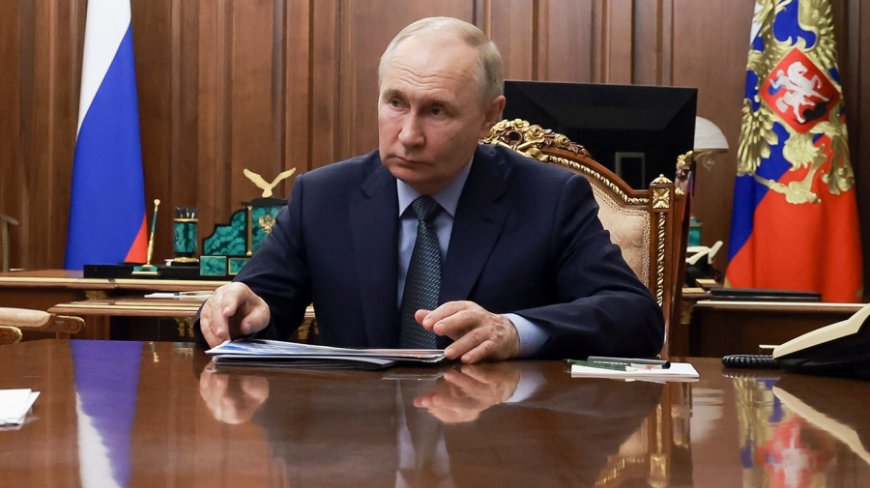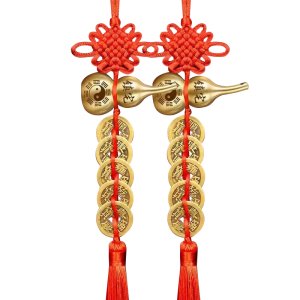Putin’s support at home and abroad dented by Kursk invasion
Russian President Vladimir Putin is working to manage the fallout at home and abroad from Ukraine’s audacious counteroffensive into the Kursk region, downplaying the significance of the incursion while buying time to mount a response. More than three weeks have passed since Ukraine broke through Russia’s defenses and seized about 450 square miles of territory....

Russian President Vladimir Putin is working to manage the fallout at home and abroad from Ukraine’s audacious counteroffensive into the Kursk region, downplaying the significance of the incursion while buying time to mount a response.
More than three weeks have passed since Ukraine broke through Russia’s defenses and seized about 450 square miles of territory. And while a senior U.S. intelligence official said it’s “certain” that Russia would launch a counteroffensive in Kursk, analysts say Putin is taking his time.
“Putin is a very risk averse individual. He is extremely calculated, and he oftentimes really prefers not to make urgent, rash political decisions that would specifically impact the health of his regime,” said Kateryna Stepanenko, the Russia deputy team lead and analyst at the Institute for the Study of War, a Washington-based think tank.
Stepanenko said Putin is working to downplay the significance of Ukraine’s attack, the first time Russia’s sovereignty has been violated since World War II.
“You would think that a country that has some of its territories face an incursion – that has been going on for over 20 days at this point – you would think that a country would use that as an opportunity to declare martial law, to declare mobilization, to declare war against Ukraine. But Russia didn't do that,” she said.
“The biggest reason is Putin is really trying to downplay this narrative.”
Putin maintains overwhelming support among the Russian public, but Ukraine’s Aug. 6 offensive into Russia marked a low point in public sentiment.
“What's going on is that there are these moments of almost exogenous shocks on the Russian system,” said Jonathan Teubner, CEO of FilterLabs, a research company that uses artificial intelligence to analyze public sentiment using a wide range of indicators.
Russia launched a devastating air campaign Monday against Ukraine, targeting energy infrastructure with reportedly more than 100 missiles and a similar number of drones affecting more than half the country. At least four people were killed and more than a dozen injured, with the strikes damaging homes, the electrical grid and water facilities.
Fears around mobilization have increased among a representative sample of the Russian population, according to polling released Friday by the Russia-based Levada Center, one of the few independent, nongovernmental organizations operating in the country. The poll was conducted Aug. 2-28 among a representative sample of 1,600 people.
The absolute majority of Russians knew and were concerned about Ukraine’s incursion into Kursk, according to Levada's polling.
But Putin is working to downplay those fears and divert attention away from Russian losses. An estimated 180,000 people have been evacuated from the Kursk region.
Putin is putting focus on the patriotism of Russian military volunteers, and playing up Russian military gains in the Ukrainian city of Pokrovsk.
“Putin is telling his society that Kursk is not significant enough to look away from the initiative that Russia has on the battlefield in Ukraine, and that Kursk is not that significant to call up mobilization and destabilize the society from within, and I think that message is resonating,” Stepanenko said.
Levada tracked Putin’s support among the public at 85 percent, virtually unchanged over the past year.
But Teubner, at FilterLabs, tracked negative sentiment toward Putin over the past few weeks among media in some regions where Russia has recruited soldiers and where military production has increased.
“If Putin’s prestige and popularity fall in these key regions (especially if Russians feel that the war is going badly), the Kremlin may find it more difficult to fill its military ranks,” FilterLabs wrote in an analysis on Aug. 22.
“There's a lot of speculation, a lot of things we don't know about how the Russian power system really functions, but we do know Putin is responsive to popular dissatisfaction,” Teubner said.
“Just like Chinese President Xi Jinping is, to some extent.”
FilterLabs also looked at how Chinese and Iranian media reacted to Ukraine’s offensive into Russia. China and Iran are two of Putin’s most important partners and have helped fuel his war in Ukraine.
Russia has employed Iranian-made, explosive drones in Ukraine and is reportedly sourcing more Iranian missiles. Moscow and Tehran are expected to sign a “comprehensive cooperation treaty” by October.
But China is Russia’s real lifeline to continuing its war. Moscow is dependent on Chinese exports of commercial goods that can be repurposed for its military, and Beijing is one of the few buyers of Russian oil that is subject to sanctions by the U.S. and allies.
“The news, both in Iran and China, are highly reflective of the government's view and they're very aware that they are tied to Putin,” Teubner said.
FilterLabs tracked negative narratives in Iran and China about the Russian leader in the immediate aftermath of the Kursk incursion, but it has since noticed a rebound.
“They didn't, all of a sudden, decide to be very positive on it, but decided to minimize it. They moved on to other issues,” Teubner said.
China is likely watching how it can exploit Russia’s vulnerability for its own purposes, said Liana Fix, a fellow for Europe at the Council on Foreign Relations.
“From China's perspective, it might almost be beneficial, because the dependence that Russia enters into with China – the dependence on dual-use goods, the dependence politically, is just to [Beijing’s] benefit,” she said.
“It's obviously an embarrassment for Putin, but from a strategic Chinese perspective, the more dependent Russia is on China, the more it is in China's interest.”
While China’s official reaction to Ukraine’s incursion into Russia repeated staid platitudes of calling for “all parties” to de-escalate, Fix said that the fact Beijing felt compelled to highlight its statement showed it viewed the event seriously.
“The fact that China has put out a response and felt the need to make clear that they condemn Ukraine's invasion, shows that it is a big issue,” she said.
What's Your Reaction?





















































